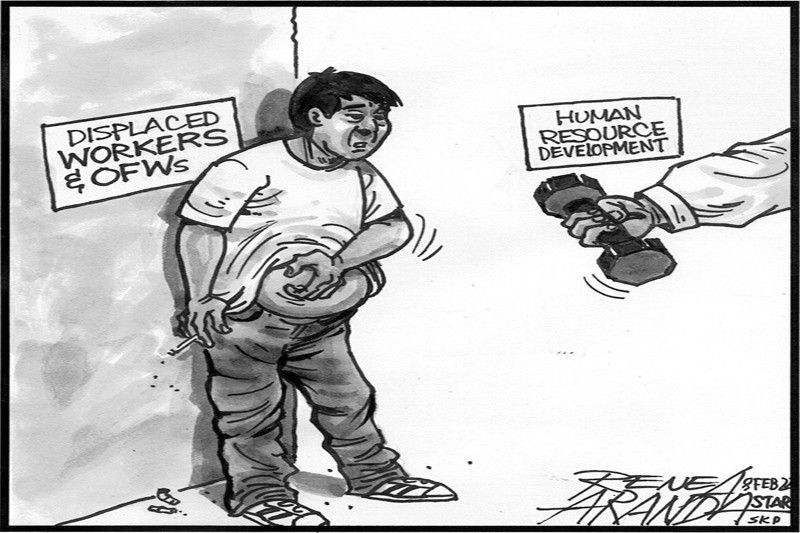EDITORIAL - Human capital development

Even before the pandemic, development experts had emphasized the need for better education and upskilling of the Philippine workforce. While the country has been one of the biggest global sources of migrant workers, most of them have been in blue collar jobs or household services. Filipino teachers took jobs overseas as maids or caregivers.
Even in business process outsourcing, the country has led mainly in voice services, thanks to Filipinos’ English proficiency. In skills BPO, however, other countries such as India are the world leaders. And even in English proficiency, the Philippines has been losing its edge, with several BPO companies reporting difficulties in recruiting workers with the required language skills.
With the global economic crisis spawned by the COVID pandemic, hundreds of thousands of overseas Filipino workers have lost their jobs and have been forced to return home. In a working paper, the Manila-based Asian Development Bank said the Philippines must intensify efforts to develop human capital, particularly for repatriated OFWs who will be reintegrated into the economy.
ADB economists said resources must be boosted for quality education and training. They said skills diversification is needed as workers must adapt and respond better to changes in the labor market. Aside from re-skilling and upskilling, the ADB paper said reintegration can include tapping the skills of returning OFWs so they can help their communities transition to self-reliant microeconomies.
Considered modern-day heroes, OFWs and their remittances have powered the country’s consumption-driven economic growth and helped keep the economy afloat even during global downturns. The OFW phenomenon, however, has steep social costs, as even Pope Francis had pointed out when he visited the Philippines. And the country must pursue the long-term goal of creating enough decent job opportunities so Filipinos will see no need to seek greener pastures abroad.
Getting meaningful employment starts with proper education. Although education is now free all the way to college, there are still too many Filipinos who cannot afford the miscellaneous costs and other demands of formal education. Improving the quality of free education also remains a work in progress, with education officials attributing this to decades of neglect and smug complacency.
The country is just starting to recover from its worst crisis since World War II. The success of recovery will hinge in large part on the quality of a nation’s most precious resource, its people. The pandemic should spur greater investments in human capital development.
- Latest
- Trending


























